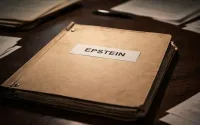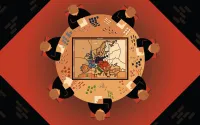25 September 2005Donna Hoffmanwacotrib.com
The horrors of Katrina and Rita make it painfully clear how dependent our communities are on the natural systems around us.
When those systems are out of balance, our safety and security are at risk.
Global warming, more than anything else today, is threatening the natural balance on which we have relied. Katrina, Rita and the future strengthened hurricanes we can expect should serve as our wake-up call to put solutions in place immediately.
Leading scientists, such as Kerry Emanuel of MIT's Atmospheric and Planetary Sciences Department, connect the increased violence of hurricanes to warmer ocean water and other trends caused by global warming.
Emanuel reports, "My results suggest that future warming may lead to an upward trend in [hurricanes'] destructive potential, and – taking into account an increasing coastal population – a substantial increase in hurricane-related losses in the 21st century."
The consequences of global warming will be felt differently in different regions and will not necessarily be experienced all at once, but the effects have the potential to be incredibly disruptive to people's lives, our economy and our public health.
The Gulf Coast states are feeling those results most directly at this, the height of the hurricane season.
One thing is clear: We're seeing that global warming is not just global. It is painfully local.
We can no longer afford to wait to put limits on emissions of the heat-trapping gases that cause global warming.
The good news is that there are real solutions that government and corporate decision-makers and Texans can implement to help stop this threat.
The best solution is for energy providers to make the great leap forward to further developing and producing more of our energy using clean renewables– the wind and solar technologies that are available.
In Texas, we take heart that our Legislature did see clearly in this direction and chose at the end of the first special session this summer to increase the state's renewable energy goal to 5 percent of the state's electricity by 2015.
While still a fraction of our overall energy to be produced, it is a vital step and an encouraging sign.
Federal leadership has done almost nothing to reduce the threat of global warming.
It is time for our cities and states – and individual Texans to lead the way and set an example by moving forward quickly with innovative solutions.
It is also time for us to raise our voices and tell our national leaders to stop scoffing at global warming and start saving us from it.
Donna Hoffman is communications coordinator for the Lone Star Chapter Sierra Club.






